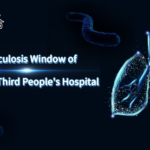
Editor's Note: The 25th International AIDS Conference was held from July 22-26, 2024, in Munich, Germany. At the conference, a randomized controlled trial conducted by the Canadian Centre for Disease Control, the University of British Columbia, and the Canadian HIV Trials Network evaluated the effectiveness of doxycycline pre-exposure prophylaxis (doxyPrEP) in preventing bacterial sexually transmitted infections (STIs) in people with HIV. The encouraging results provide new evidence supporting the preventive use of doxycycline in people with HIV, offering a promising approach for STI prevention in this vulnerable group. We invited Dr. Yun He from Shenzhen Third People's Hospital to provide an in-depth analysis of this study and its deeper implications.Study Overview
This pilot study aimed to explore the effectiveness of doxyPrEP in preventing bacterial STIs in men with HIV. The study employed a randomized, double-blind, placebo-controlled design, enrolling 52 HIV-positive individuals aged 38-54 with a history of syphilis. Participants were randomly assigned to either the doxycycline group or the placebo group, receiving daily oral doses of doxycycline (100 mg) or placebo for 48 weeks.
During the study, participants underwent quarterly STI screenings, including serological testing for syphilis and nucleic acid testing for gonorrhea and chlamydia (urine, throat, and rectal samples). They also completed questionnaires on medication adherence, sexual behavior, and adverse events. Additionally, nasal swab samples were collected to assess the development of doxycycline resistance in Staphylococcus aureus carriers.
Study Results
The results indicated that the doxycycline group showed a significant advantage over the placebo group in preventing syphilis, gonorrhea, and chlamydia infections. Specifically, the doxycycline group saw a 79% reduction in syphilis incidence, a 92% reduction in gonorrhea incidence, and a 68% reduction in chlamydia incidence. Importantly, there were no significant differences in medication adherence or sexual behavior between the two groups, suggesting that the preventive effect of doxycycline was not due to changes in behavior.
In terms of safety, most adverse events were mild, and there were no statistically significant differences in adverse event rates between the two groups. Only one participant discontinued the study due to a drug-related adverse event (worsening gastroesophageal reflux disease), and one serious adverse event (monkeypox-related proctitis unrelated to the drug) occurred in the doxycycline group, but it did not affect the overall conclusions of the study.
Regarding resistance, the study found no significant difference in the development of doxycycline resistance in Staphylococcus aureus carriers between the doxycycline and placebo groups from baseline to week 48 (3/19 vs. 2/19, P=0.57).
This study confirmed the effectiveness of doxycycline PrEP in significantly reducing the incidence of bacterial STIs, such as syphilis, gonorrhea, and chlamydia, in people with HIV. It offers a new STI prevention strategy for people with HIV, demonstrating good tolerability, low adverse event rates, and no significant increase in resistance risk, highlighting its potential as a long-term preventive measure.
Expert Commentary
01 Infectious Diseases Frontier: What specific outcomes did doxycycline achieve as a PrEP drug in reducing STI incidence among people with HIV?
Dr. Yun He: This study opens another area of research, focusing on reducing the risk of other infections in HIV-positive individuals. Previously, we had prophylaxis studies aimed at preventing other infections, such as pulmonary or fungal infections, using various drugs. This study focuses on reducing the risk of bacterial STIs and other atypical pathogens, such as syphilis, chlamydia, and gonorrhea, in HIV-positive individuals.
Using doxycycline as a PrEP drug to reduce the risk of STIs in HIV-positive individuals who engage in same-sex behavior is an effective strategy. It can lower the risk of co-morbid infections in people with HIV. Although the study involved a small number of participants, the data already show significant effects in reducing common STIs like gonorrhea, chlamydia, and syphilis.
02 Infectious Diseases Frontier: What were the main advantages of doxycycline in preventing STIs compared to the placebo group? Did these advantages have statistical significance?
Dr. Yun He: This study, although involving only 52 participants divided between the test and placebo groups, demonstrated a high success rate in preventing bacterial infections with doxycycline. The data clearly show that the risk of syphilis infection was reduced by over 70%, and chlamydia infection by over 90%. These results are very significant. Even without considering statistical differences, these findings are positive for the participants involved.
However, one major issue we face is the nature of doxycycline itself. Originally, doxycycline is used to treat syphilis infections in people allergic to penicillin, as well as for gonorrhea and chlamydia infections. So, when the final result is negative, we need to consider whether this truly represents successful prevention or if potential infections were already treated. This is a question I have regarding the study, and it is something we need to consider and further validate in future research on doxycycline for prevention.
03 Infectious Diseases Frontier: Based on your clinical experience, how safe is long-term use of doxycycline as PrEP? What are the main challenges in improving adherence to STI prevention strategies, and how can they be addressed?
Dr. Yun He: For people with HIV, lifelong medication is already a significant challenge to their adherence. If we require them to take doxycycline daily to prevent STIs, it adds another layer of difficulty. Some patients may think, “I can avoid preventive medication and treat infections as they occur.” So, adherence might be the biggest challenge in this decision.
Preventive strategies against bacterial infections are very good, as our patients might continue to engage in high-risk behaviors. After receiving HIV treatment, there is a concept of “U=U,” meaning these patients can no longer sexually transmit HIV. But many people under this concept may neglect the prevention of other STIs. Strategies reminding them that they can still get other STIs despite having HIV are very beneficial. However, better preventive measures for HIV patients should first focus on healthier sexual behaviors, followed by safe sexual practices, with condoms being the primary choice.
Drug prevention faces two issues: adherence and resistance. All three diseases can develop resistance to doxycycline. Additionally, if widely implemented, HIV-positive individuals might misuse these drugs without proper monitoring, potentially developing resistance. Therefore, there is a significant discrepancy between clinical research and real-world practice, which is the biggest challenge.
04 Infectious Diseases Frontier: What are your suggestions for further exploring the use of doxycycline or other PrEP drugs in STI prevention? What specific policy recommendations do you have for public health departments?
Dr. Yun He: As a clinician, we can consider combining two aspects. First, for those who are not yet infected, health education is our ongoing effort. Our goal is to prevent infections as much as possible. For HIV-positive individuals, the first measure for preventing other infections is still health education, reminding them not to spread the disease and that they still have the chance to contract other STIs. Second, PrEP is a highly effective strategy for preventing both HIV and other infections. In implementing this, we need to mobilize more community resources. In China, we have successfully reduced HIV transmission by mobilizing community resources. We should also include the prevention of STIs in our campaigns, not just focus on HIV. This approach might achieve better results. It requires government leadership, multi-department participation, and the involvement of socially responsible individuals. By influencing those around us and expanding the scope of social awareness like a snowball, we can significantly enhance the impact. In summary, PrEP is a crucial strategy for preventing AIDS, reducing HIV transmission, and minimizing the spread of infectious diseases.


